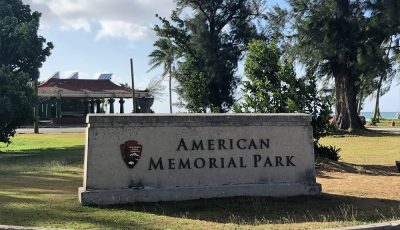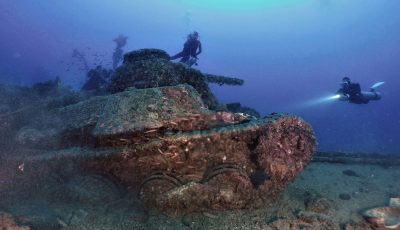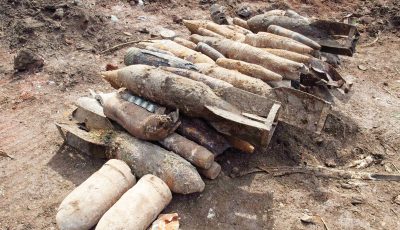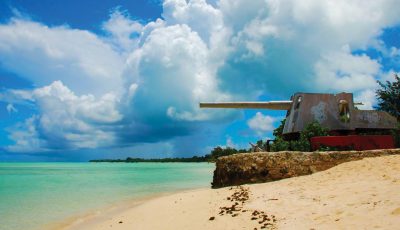Granddaughter of WWII veteran explores missed connections

World War II G-2 security and intelligence officer Sam Weintraub, left, of the U.S. Army Air Corps is shown in this file photo with another intelligence officer. (Contributed Photo)
Betsy Weintraub, the granddaughter of World War II G-2 security and intelligence officer Sam Weintraub, recently moved to Saipan to learn more about the islands that her grandfather loved so much that he kept returning decades after the war.
During her time here, Betsy Weintraub hopes to locate some of the people who knew her grandfather, or at least some of their relatives.
Her grandfather, she said, made many return trips to the islands and eventually moved here in the 1970s.
Betsy Weintraub is planning a trip to Tinian to visit the places her grandfather loved and hopefully reconnect with the people who knew him in the 1980s.
Saipan Tribune asked whether she knew of any family names her grandfather may have mentioned and she said, “I only know nicknames but I’m in the process of acquiring his war journal and his personnel files through the Freedom of Information Act. My father actually tried to retrieve this information back in the ’70s but that was a different time and it was harder to gain information.”
She says she hopes to gain more insight and direction about her grandfather’s time on the islands since his passing in 1993.
Newspaper articles from the 1940s detailed Sam Weintraub’s reconnaissance work in the area in 1945 and his responsibilities in pioneering psychological warfare. In a Mid-South article from Aug. 14, 1983, Sam Weintraub was recognized for coaxing 16 Japanese prisoners armed with grenades from island caves.
These flimsy pieces of newspaper cuttings and sepia-toned photos of her grandfather inspired her to find out more about the man who brought peace during a war of inhumane brutality.
“These are just the early stages,” she said, as she goes forward documenting and exploring her grandfather’s experiences.
Weintraub was in the U.S. Army Air Corps, rising from private to temporary major, a status given to officers who attain their rank during war, bringing his specialty with army intelligence and pioneering the psychological warfare tactics to the table.
According to the article, when he was finally in charge on Tinian, no more shots had been fired for several months and instead, psychological tactics of convincing the Japanese that surrendering was not so dishonorable saved many lives using peaceful means.
“I remember him well and all his talks about Tinian. It really was like a part of him, which is why I came here,” Betsy Weintraub said.



























